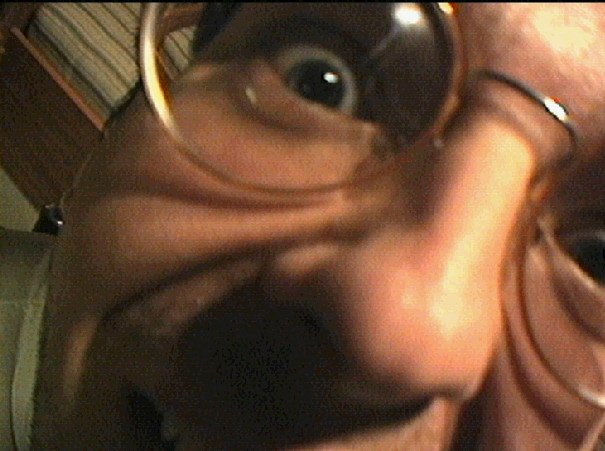 Back to Ganjatron's site
Back to Ganjatron's siteGanjaTron's Classic Albums:
BBC Radiophonic Workshop - 21 (1979)

Beeps, bloops, obnoxious noises, bizarre jingles, and of course the unforgettable Dr. Who theme; unbeknown to many, these are signature sounds of the BBC's venerable Radiophonic Workshop.
Originally established in 1958 as a facility for the production of sound effects for BBC radio plays, the workshop became an institution in its own right.
Operating in secrecy from the bowels of the Beeb's Maida Vale studio, it was long shrouded in mystery. Little is known about the workshop and its uncredited denizens, many of whom have only recently been acclaimed for their pioneering achievements in electronic music (albeit posthumously in most cases). Most notable among these artists was Delia Derbyshire, responsible for the creepy Dr. Who theme from 1963 (!) that freaked us out as kids. (I never was a fan of the series, but the intro never failed to mesmerise me).
The early output of the workshop was based in the tradition of Musique Concrète, i.e. using recorded natural sounds and processing them electronically, before the commercial availability of synthesisers. Sources for manipulated sounds included everyday items such as struck lampshades, keys run over piano strings, and strummed pieces of string (e.g. the bassline in the Dr. Who theme).
The ingenious Derbyshire went beyond Musique Concrète and recorded not just natural sounds, but also electronically generated ones, such as the signals of valve oscillators calibrated to a note scale, layering several voices to create the rich overtones audible in the Dr. Who theme.
The majority of the tracks were laboriously produced by literally splicing bits of tape together, recorded at different speeds and manipulated through filters and echo chambers. To this end, the lab was equipped with batteries of enormous, variable speed open reel tape decks -- an analog precursor to digital sampling, if you will. Sequences were implemented through tape loops, some running the length of the corridor.
The advent of commercial synthesisers (notably Moogs) in the late 60s prompted a number of old-time members and Musique Concrète proponents such as Derbyshire to leave the workshop. They were convinced these newfangled (and often unreliable) gadgets stifled their creativity, and that the technology was driving the artist, not vice versa.
Despite such impressive equipment as the Synthi 100 and the EMS Vocoder, the workshop's output was showing signs of declining creativity in subsequent years. Economic realities finally caught up with the workshop in the 90s, and rising expenses coupled with waning commissions in the face of cheaper competition finally forced the workshop to close in 1998.
This LP from 1979 was released on the occasion of the Radiophonic Workshop's 21st anniversary, and is one of the very few official releases. It'll need some effort to track down, and there is no CD version I'm aware of.
The first side spans the era from 1958-1971, and is dedicated to Musique Concrète and early synthie stuff, while the second (1971-1979) is dominated by commercial synthies and sounds clearly more polished and high tech, but at times also somewhat lacking in originality compared to the earlier releases. It goes without saying that the recording quality improves noticeably in chronological progression, with the later recordings in stereo.
Most tracks are short radio and TV jingles, clocking in at 20--50 secs, with only a few exceeding 1 min. The blend consist of jaunty (even inane) tunes juxtaposed with downright creepy stuff. Among the highlights are Fagandini's funky Time Beat interval signal, Peter Howell's glorious Greenwich Chorus featuring the Vocoder, and of course Derbyshire's brilliant Dr. Who, among a few other of her works.
This is clearly a specialty/novelty record and mainly of interest to electronic music aficionados. Musicality isn't always immediately associated with the sounds engraved on this LP, particularly on the first side.
Having said that, the creativity, ingenuity, and pioneering spirit of the Radiophonic Workshop is clearly showcased in this collection of what is now BBC history.
Track Listing
Side 1
- Quatermass and the Pit (Briscoe)
- Bloodnock's Stomach (Mills)
- Outside (Briscoe)
- Science and Industry (Young)
- The Artist Speaks (Young)
- The Splendour that was Rome (Young)
- Interval Signal (Fagandini)
- Phra the Phoenician (Briscoe)
- Stick Up (Briscoe)
- Time Beat (Fagandini)
- Ideal Home Exhibition (Fagandini)
- Time on our Hands (Derbyshire)
- Arabic Science and Industry (Derbyshire)
- The Chem Lab Mystery (Fagandini)
- Know Your Car (Derbyshire)
- Dr. Who (Derbyshire)
- Tardis (Hodgson)
- Choice (Baker)
- Hardluck Hall (Baker)
- Talk Out (Derbyshire)
- Science and Health ("Mike's Choice") (Derbyshire)
- Secrets of the Chasm (Askew)
- Westminster at Work (Salmon)
- A New View of Politics (Derbyshire)
- Environmental Studies (Derbyshire)
- Chronicle (Derbyshire)
- Great Zoos of the World (Derbyshire)
- Minds of Evil (Simpson)
Side 2
- Fanfare (Mills)
- Broken Biscuit Club (Kingsland)
- The Plunderers (Limb)
- Mysterioso ("Blake's Seven") (Yeoman-Clark)
- Greenwich Chorus (Howell)
- Hurdy Gurdy (Clarke)
- Martian March Past (Mills)
- A Whisper from Space (Kingsland)
- Swirley (Limb)
- Merry-Go-Round (Howell)
- BBC-2 Serial (Clarke)
- Quirky (Limb)
- Newton (Kingsland)
- The Secret War (Howell)
- Thomas the Rhymer (Mills)
- Contact (Clarke)
- For Love or Money (Limb)
Back to classic albums
 Back to Ganjatron's site
Back to Ganjatron's site